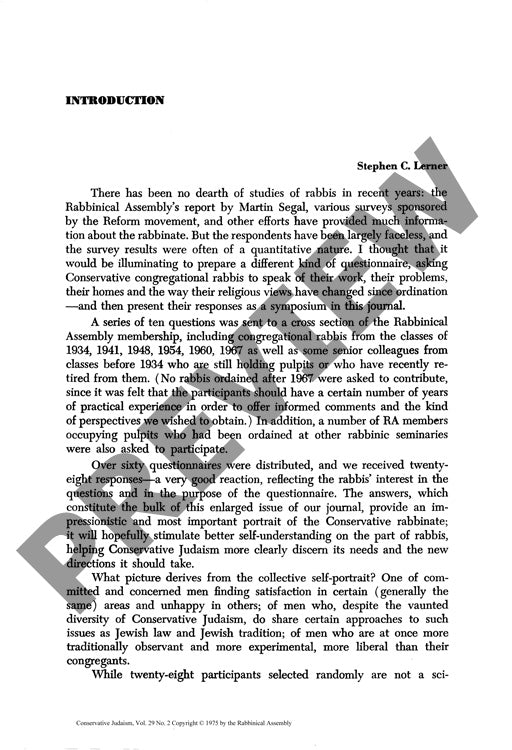Introduction
Couldn't load pickup availability
Conservative rabbis navigate a complex paradox: engaging with their congregations makes them simultaneously more liberal and more traditional in their religious practice. A qualitative survey of twenty-eight Rabbinical Assembly members, ordained between 1934-1967, reveals how these religious leaders adapt their approaches while maintaining commitment to halakhah. The research, drawing from over sixty distributed questionnaires to congregational rabbis and senior colleagues, illuminates a critical challenge facing Conservative Judaism - the disconnect between institutional affiliation and religious practice among congregants. Rabbis find greatest fulfillment in religious counseling and adult education while struggling with administrative duties. Their evolving religious leadership manifests in declining enthusiasm for traditional Friday evening services and increased experimentation with alternative formats, such as replacing formal sermons with Torah study. These shifts in rabbinic practice suggest the need for enhanced training in counseling techniques, management skills, and innovative liturgical approaches to address changing congregational dynamics.

More Information
-
Physical Description
-
Publication Information
Published 1975
ISBN
-
Publication Credits
Stephen Lerner

